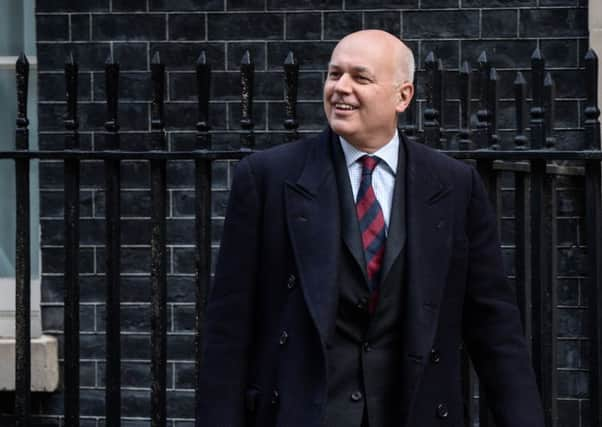Leader comment: Global threats require a joint response


The past few days have offered a flavour of the full-throated arguments surrounding Europe we should expect in the run-up to June’s referendum, but among the most crucial are the issues concerning security.
It is true that Britain’s defence capabilities are most reliant on another union, namely the 28-member Nato organisation, and any mature debate must centre around over whether this should continue to serve as the cornerstone of our defence policy.
Advertisement
Hide AdAdvertisement
Hide AdOf course, such talks will only touch on our conventional defence infrastructure. In today’s world, the gravest threat we face is a terrorist attack from militant groups such as Islamic State. The events in France last November, in which 130 people died, provided the starkest reminder of such dangers.
That is a threat that Nato, for all the good it has done, cannot adequately counter. The means by which we do so are changing all the time, but ultimately, they require close co-operation with other European countries. It is surely only prudent to ask why would we in Britain would risk that response not being the very best it can be.
The defence secretary, Michael Fallon, made an astute observation yesterday when he said that it is the “collective weight” of partnerships such as the European Union that makes it easier for Britain to combat global threats.
The mechanisms that make this possible are wide-ranging, such as the systems that allow for the exchange of criminal records and passenger records.
That is not to say that in the event of an exit the UK would not be able to stand on its own two feet, but it is fair to say that the transition would usher in a period of uncertainty.
Like many arguments surrounding the referendum, defence elicits passionate responses. But that is no excuse for some of the ill-judged contributions we have seen in recent days.
Iain Duncan Smith in particular should be ashamed of his argument that remaining in the EU would leave the UK more exposed to terrorist attacks such as the atrocity in the French capital.
The former Conservative leader, now the work and pensions secretary and one of six Cabinet ministers campaigning for Brexit, warned that the EU was in meltdown over migration and claimed that other EU members could give passports to migrants, allowing them to travel freely to the UK. “We see what happened in Paris,” he said.
Advertisement
Hide AdAdvertisement
Hide AdYes, the likes of IS are a threat, but it is distasteful in the extreme and frankly wrong-headed to suggest that we would be at greater risk simply because the EU stands up to those states that show disdain for the international community.
Whether it is reprimanding Russia over its annexation of Crimea or Iran over its nuclear programme, the EU has shown it is not afraid of confrontation. Regardless of whether we remain in its clutches, surely the principle of doing the right thing, irrespective of risk, is a value we should hold dear whatever the outcome this summer?
Oil industry in dire straits
Were there any doubt as to the precarious state of the oil industry, today’s report by Oil & Gas UK spells out in chastening terms the extent of its travails.
The trade body’s activity survey for 2016 warns that the sector stands “at the edge of a chasm,” with the rate of exploration for new reserves on the UK Continental Shelf at an all-time low. To make matters worse, it says there are no signs of the situation improving.
Despite falling operating costs and rising oil and gas production, a lack of investment has given way to growing concerns for the long-term future of the industry.
The facts and figures spelled out in the report make for ominous reading. Less than £1 billion of fresh capital spending is expected to be approved over the course of 2016, around an eighth of the annual sum seen each year since 2011. Just 13 exploration and 13 appraisal wells were drilled in 2015, with as few as seven to ten exploration wells and six to nine appraisal wells forecast this year.
It should come as no surprise that Oil & Gas UK believe this dire situation should be addressed by urgent tax reform, with calls for a significant permanent reduction in its tax rates.
The UK government insists its “broad shoulders” are fully behind the industry and the thousands of employees and families it supports. Rightly, it has helped to create greater collaboration and productivity, though some no doubt feel it could do more.
Advertisement
Hide AdAdvertisement
Hide AdAt a time when communities like Aberdeen are bearing the brunt of this downturn, that is a compelling argument, but we should also remember that oil is a global commodity and a much-needed recovery will come.